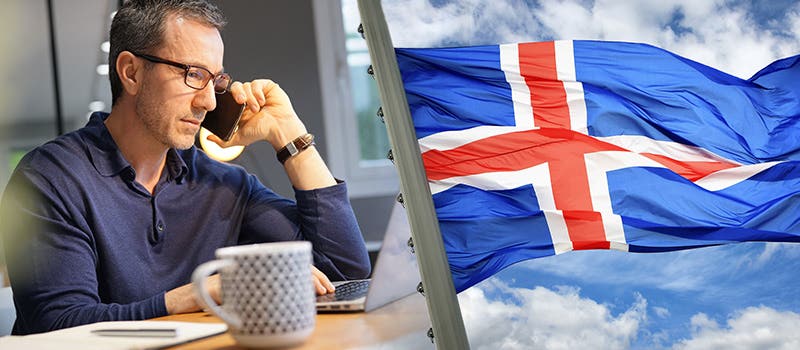Iceland just ran the most extensive four-day work week trial and here are the results
The biggest working trial of a four-day working week has been dubbed an ‘overwhelming success’ by researchers

[July 5, 2021: Kieran Howells]
According to reports, the trial of a four-day working week concept was tested out in Iceland, where more than one per cent of the working population, or 2,500 people, took part by cutting working hours to 35-36 hours with no reduction in pay.
Analysts from both Iceland and the UK have now stated that, due to the rise in productivity and wellbeing found in the trial, a four-day working week should now be tested in other geographic areas including the UK.
According to the Icelandic Trade Union Federations, which collectively negotiate wages and conditions for most Icelandic employees, many companies that took part in the trial have negotiated reduced working hours permanently as a result.
Taking place between 2015 and 2019, the working experiment included a mix of traditional nine-to-five employees and those on non-standard shift patterns. Office, playschool, hospital and social service workers were also among those who took part.
The analysts now estimate that due to its success, up to 86% of Iceland’s entire working population now has either reduced hours or flexibility within their contracts to lower hours.
What are the benefits to society of a four-day working week?
The topic of a four-day working week, and the benefits that it could bring to both staff and the business, is something that will likely be of interest to employers and employees alike.
Well, key findings from the think tank Autonomy in the UK and the Association for Sustainability and Democracy (Alda) in Iceland, found that some of the outcomes included a significant increase in worker wellbeing, reduced perceived stress and lower levels of burnout – all of which have likely increased elsewhere as a result of the coronavirus crisis.
The researchers also found that productivity and work-life balance were significantly improved, leading Alda researcher Gudmundur D. Haraldsson to suggest that other countries should be following Iceland’s example.
"The Icelandic shorter working week journey tells us that not only is it possible to work less in modern times, but that progressive change is possible too," Haraldsson said.
“Our roadmap to a shorter working week in the public sector should be of interest to anyone who wishes to see working hours reduced."
Like these kind of feel good stories? Get the Brighter Side of News' newsletter.
Tags: #New_Discovery, #Companies, #Employees, #Job_Satisfaction, #The_Brighter_Side_of_News



